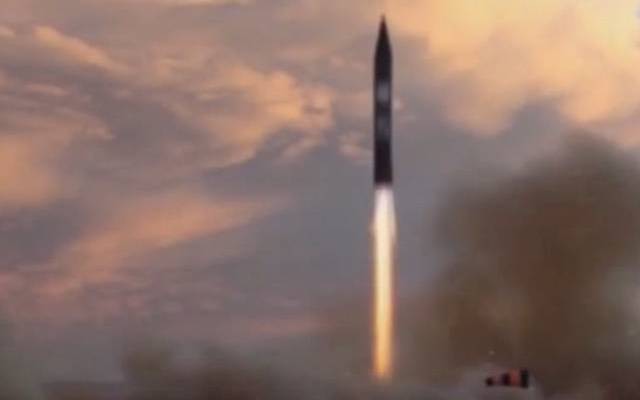Iran’s alleged ballistic missile launch over the weekend did not occur and the purported footage is actually from a failed attempt in January, media reported.
CNN reported that US intelligence radars and sensors “picked up no indication” of an Iranian ballistic missile launch in the days surrounding Iran’s reported launch of the new Khorramshahr medium-range ballistic missile over the weekend.
Instead, the purported footage of the launch appears to be that of a failed attempt conducted in January, media reported Monday
Iranian reports on the missile testing so far do not appear to be true, a Trump administration official familiar with the latest US assessment said, adding “as far as we can see, it did not happen.”
The telemetry, or electronic signals, of a ballistic missile launch would have been picked up by a variety of US assets in the region which monitor Iran’s weapons activities, the official told CNN.
Fox News reported that the video released by the Iranians was more than seven months old, dating back to a failed launch in late January, which resulted in a missile exploding shortly after launch. At the time, Iran was attempting to launch the Khorramshahr missile for the first time.
President Donald Trump tweeted after the apparent launch on Saturday: “Iran just test fired a ballistic missile capable of reaching Israel. They are also working with North Korea. Not much of an agreement we have!”
Fox News quoted experts who say Iran possesses the largest arsenal of ballistic missiles in the Middle East, with more than 1,000 short- and medium-range ballistic missiles. Tehran has conducted over 20 missile tests since 2015, the year the controversial nuclear deal was signed.
UN Security Council (UNSC) resolution 2231, voted on days after the Iran nuclear deal was signed, calls on the Islamic Republic not to conduct ballistic missile tests, but does not forbid them from doing so, after Russia and China insisted on the watered-down language in order to pass the resolution.
The UNSC resolution states that Iran is “called upon not to undertake any activity related to ballistic missiles designed to be capable of delivering nuclear weapons, including launches using such ballistic missile technology.”
According to the Center for Strategic and International Studies, Iran is “supplying proxies such as Hezbollah and Syria’s al-Assad regime with a steady supply of missiles and rockets.”
Iran claims its military development is for defense purposes only. However, many of these weapons were given to the Hezbollah terror organization and used against Israel’s civilian population during the Second Lebanon War in the summer of 2006.
Iran has repeatedly threatened to use its missiles against Israel.










